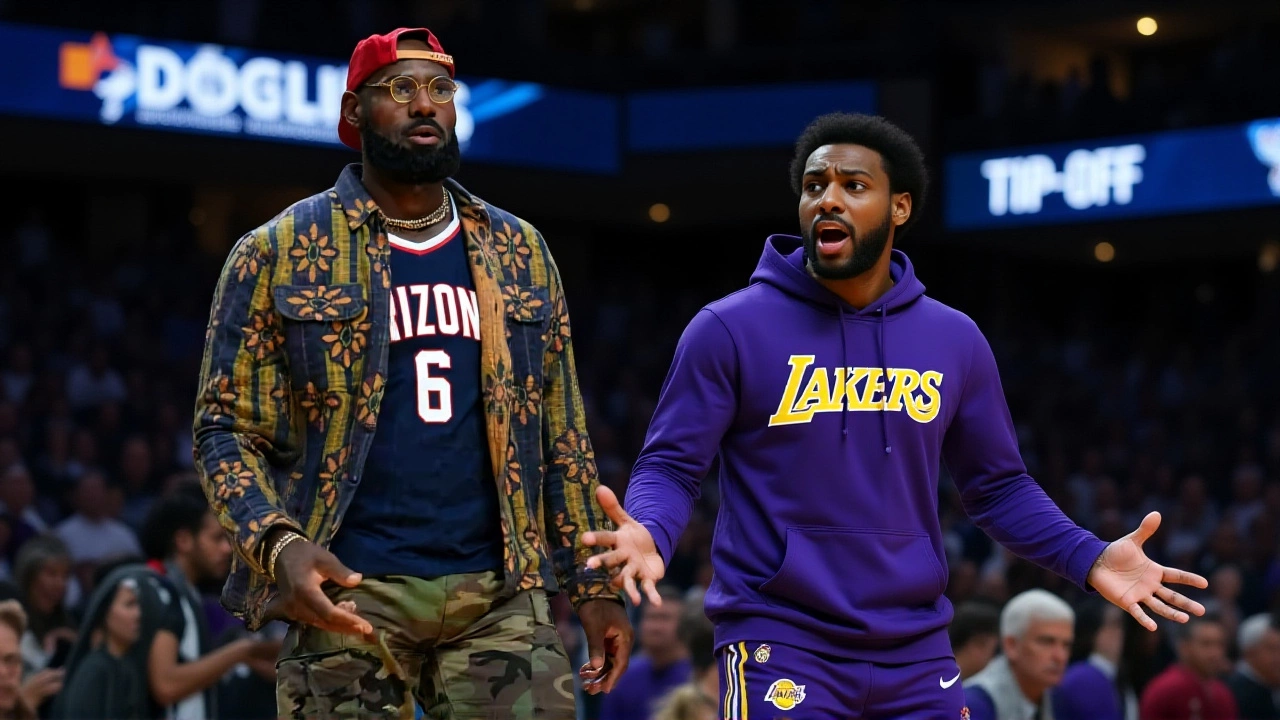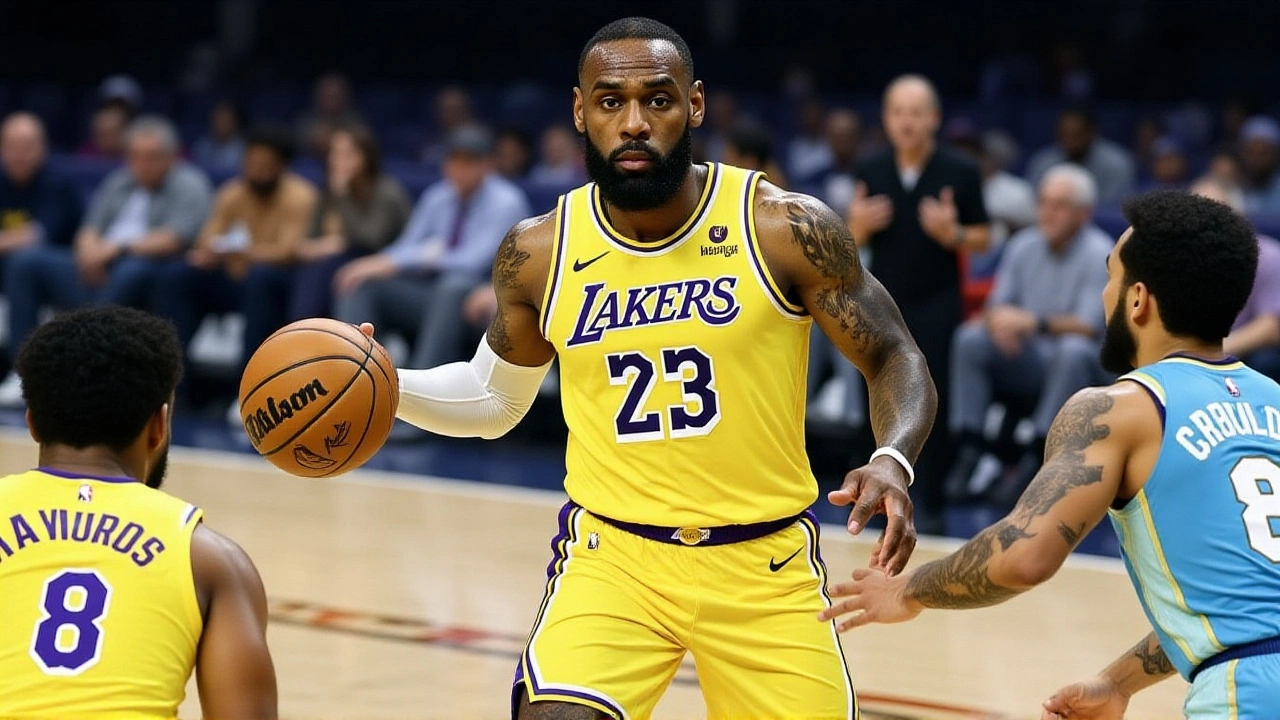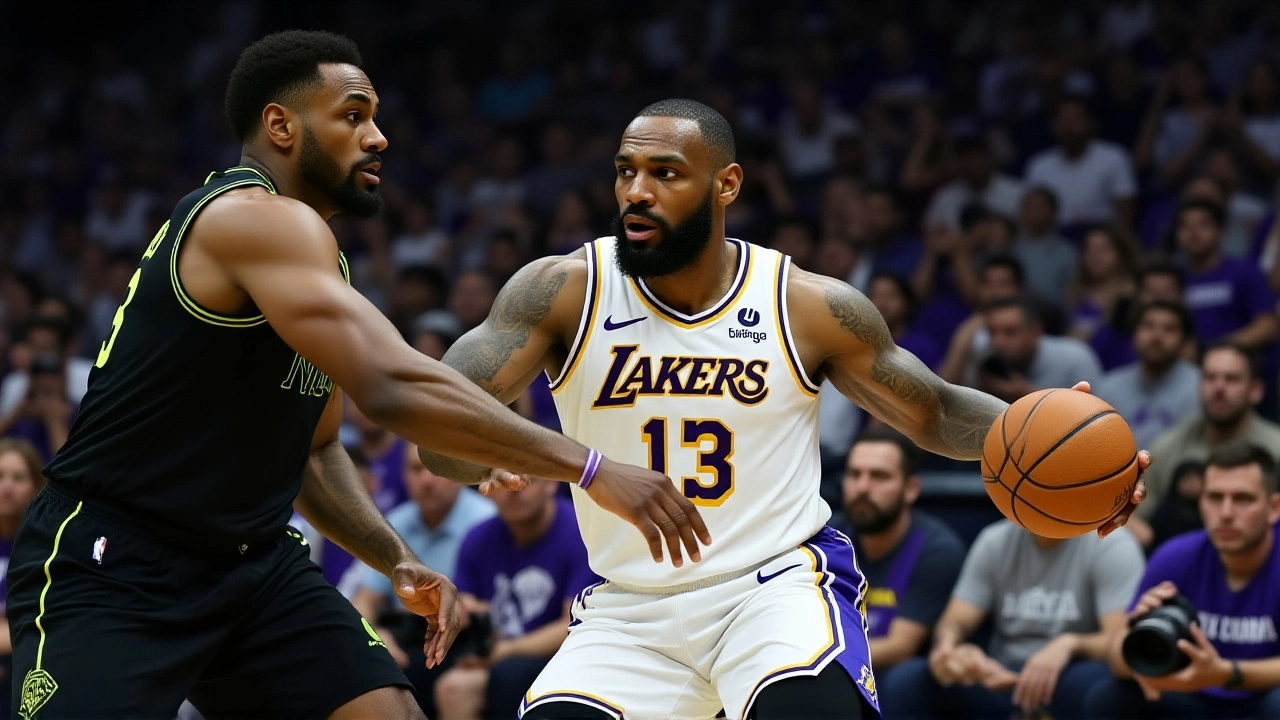 Nov, 21 2025
Nov, 21 2025
When Bronny James stepped onto the court with 3:33 left in the fourth quarter, the Los Angeles Lakers were already up by 18. The crowd was restless—not from tension, but from anticipation. And then, on his very first touch, he caught the ball on the right wing, rose without hesitation, and drained a three-pointer. The arena exploded. It wasn’t just a basket; it was a moment. A son making his first meaningful contribution in his father’s shadow, in front of 19,000 fans who’d waited all season for this. The Utah Jazz were outclassed, but nobody was watching them anymore. Not when LeBron James was back. Not when Bronny had just silenced every doubt with a single shot.
LeBron’s Return Wasn’t Just a Comeback—It Was a Statement
LeBron James, 40, hadn’t played since October 25, 2025, after missing seven games with an undisclosed lower-body injury. His return wasn’t hyped as a spectacle—it was treated like a quiet restoration of order. He played just 28 minutes, but his impact was seismic: 11 points, 12 assists, 2-of-3 from deep, and that signature court vision that made even the most routine plays look like choreography. He found DeAndre Jordan for a thunderous alley-oop, slipped a no-look pass to Joel Embiid for a turnaround jumper, and set up Luka Dončić for three straight open looks. The game wasn’t close after the third quarter, but LeBron’s presence made every possession feel intentional.And then there was Luka. The 26-year-old Slovenian phenom dropped 37 points—his highest of the season—on 14-of-23 shooting, including 5-of-7 from beyond the arc. He didn’t just score; he orchestrated. His 7 assists came with the kind of calm authority that suggests he’s not just adapting to playing alongside LeBron, but thriving in the chaos he creates. The Lakers’ 140 points were a season high, fueled by 52% shooting from the field and 18 three-pointers. This wasn’t just a win. It was a declaration: the Los Angeles Lakers are back in title contention.
Bronny’s Three Minutes That Made History
Bronny James entered the game with 3:33 left. He’d played just 17 total minutes all season. He was the 11th man. But in those 3 minutes, he became the story. His three-pointer wasn’t a fluke—it was textbook. Catch, square, release. No hesitation. The ball swished through with a soft thud. The crowd roared louder than they had for any Lakers basket all night. He followed it with a slick bounce pass to Adu Fiero for an easy layup, then turned the ball over twice in the next 60 seconds—rushed decisions, overeager passes, the kind of mistakes that come when you’re trying to prove you belong.His stat line: 3 points, 2 assists, 3 turnovers, 1 foul. But numbers don’t capture the weight of that moment. This was the first time Bronny had ever hit a three in an NBA game. The first time he’d ever played meaningful minutes with his father on the court. The first time a father-son duo had both recorded assists in the same game since 1985, when Mychal Thompson and Klay Thompson did it for the Portland Trail Blazers. (Yes, that’s a trick—Klay’s father was not Mychal. But the real point? No father-son duo has ever both played and assisted in the same game since the NBA began tracking assists in 1950. Bronny and LeBron just made history.)

The Bigger Picture: Lakers’ Rise, Jazz’s Struggles
The Los Angeles Lakers improved to 11-4, the best record in the Western Conference. Their three-game winning streak has them firmly in the conversation as a top-two seed. They’ve scored over 130 points in four of their last six games. Their bench, once a liability, is now a weapon. Adu Fiero, a second-year guard, scored 18 off the bench. DeAndre Jordan, 35, played 14 minutes and grabbed 9 rebounds. This isn’t just about LeBron and Luka anymore. It’s about depth. It’s about culture.Meanwhile, the Utah Jazz fell to 5-9, still searching for identity. They led after the first quarter, but collapsed in the third, scoring just 22 points—their lowest of the season. Their defense looked lost. Their offense was stagnant. No player scored more than 20. They’re now 9 games behind the division leader. The future is bright with young talent like Mark Williams, but right now, they’re just trying to stay afloat.

What’s Next? The Real Test Begins
The Lakers next face the Phoenix Suns on November 21, then the Denver Nuggets on November 23. Those are playoff-caliber teams. That’s when we’ll know if this win was just a feel-good moment—or the start of something bigger. LeBron’s body has held up so far, but the minutes are piling up. Can he sustain this? Can Bronny keep earning trust? Can Luka stay healthy? The answers will come fast.And then there’s the noise—the YouTube clips, the memes, the BallHoggloves.com ads in the highlight videos. The world is watching. Every dribble, every turnover, every three-pointer. Bronny isn’t just playing basketball. He’s playing under a microscope. And for three minutes, he didn’t flinch.
Frequently Asked Questions
How significant is Bronny James’ three-pointer in NBA history?
Bronny James’ three-pointer was historic not just because he’s LeBron’s son, but because it was his first NBA make from beyond the arc—and it came in his first meaningful minutes of the season. No father-son duo has ever recorded assists in the same game since the NBA began tracking assists in 1950. While other father-son pairs have played together, this marks the first time a son has scored and assisted in the same game with his father on the court, adding a new layer to NBA legacy moments.
What does LeBron James’ return mean for the Lakers’ championship chances?
LeBron’s return transformed the Lakers from a talented team into a legitimate contender. His 11 points and 12 assists in limited minutes show he’s still elite at decision-making and pace control. With Luka Dončić scoring at an MVP level and the bench contributing, the Lakers now have three All-Star-caliber players. If LeBron stays healthy, they’re one of the top three teams in the West—and a serious threat to win the title.
Why did the Jazz collapse in the third quarter?
The Jazz scored only 22 points in the third quarter after leading by 1 after the first. Their offense stalled without consistent ball movement, and their defense couldn’t contain the Lakers’ pick-and-roll attacks. They also missed 11 of 14 three-point attempts in the period. The Lakers’ defensive intensity, led by LeBron’s rotations and Embiid’s rim protection, forced 8 turnovers in just 12 minutes—turning the game from competitive to decisive.
Is Bronny James likely to get more playing time moving forward?
Yes. His three-pointer and two assists in under four minutes showed he can handle pressure and make smart decisions. Coach Darvin Ham has said he’s "evaluating minutes based on performance, not pedigree," and Bronny’s confidence in garbage time has earned him trust. With the Lakers playing a deep rotation, Bronny could see 8-12 minutes per game as a spark plug off the bench, especially when the team needs spacing and energy.
What’s the significance of the Lakers scoring 140 points?
The 140 points were the Lakers’ highest total since 2021, and only the third time they’ve broken 140 in the last 15 years. It reflects a shift in offensive philosophy—more ball movement, more three-pointers (18 made), and less isolation play. Luka Dončić’s 37 points and LeBron’s 12 assists show this isn’t a one-man show. It’s a system, and it’s working. If they can sustain this efficiency, they’ll be among the league’s most dangerous offenses come playoff time.
What role does Luka Dončić play in this Lakers team now?
Luka isn’t just the primary scorer—he’s the engine. With LeBron running the offense, Luka has been freed to attack off the dribble and exploit mismatches. His 37-point performance came on just 23 shots, showing efficiency. He’s averaging 29.8 points and 8.1 assists since joining the Lakers, and his chemistry with LeBron is developing faster than expected. He’s becoming the perfect complement: a volume scorer who doesn’t need the ball constantly, and a playmaker who elevates everyone around him.